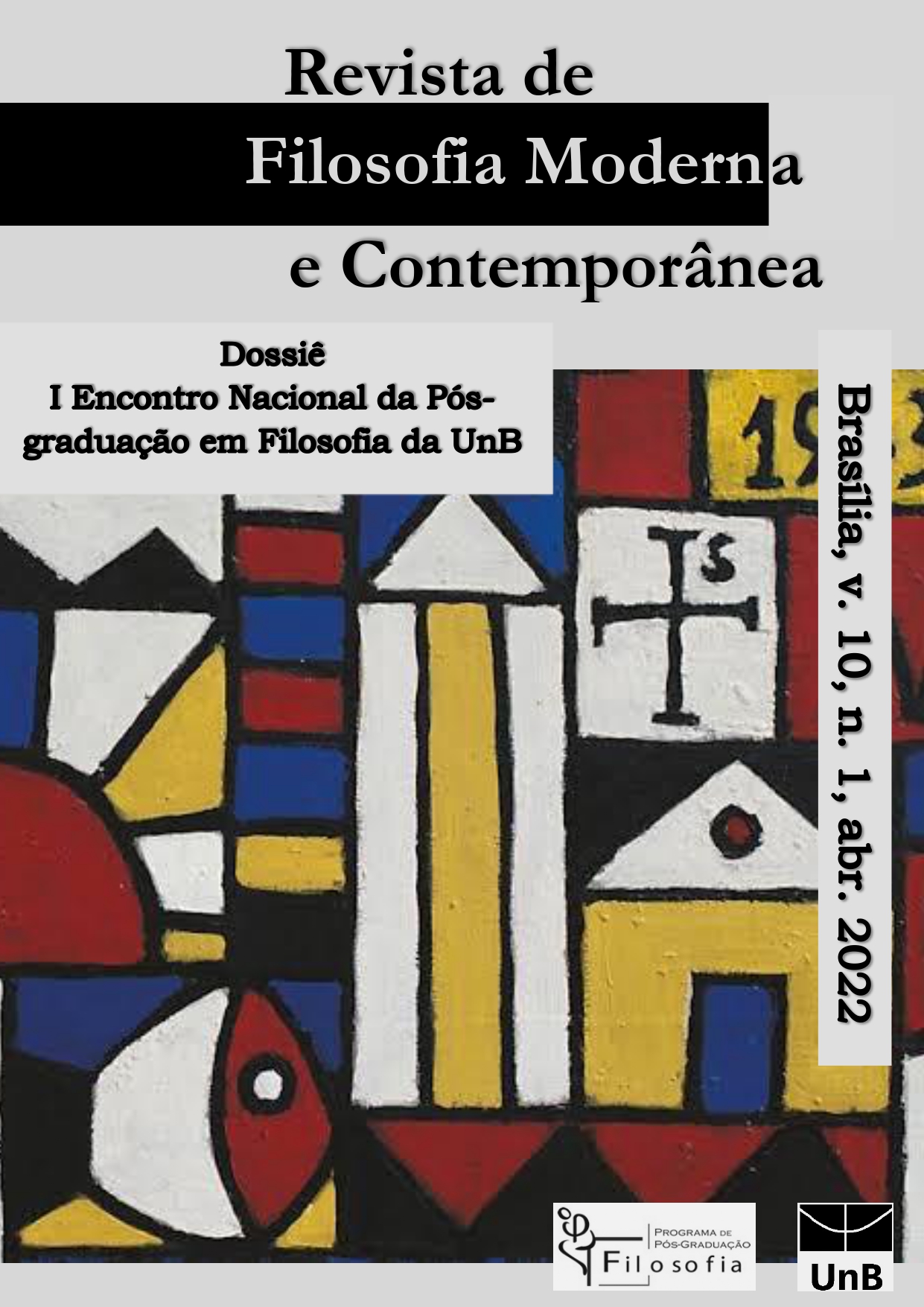The Epistemological Crisis of Quantum Theory
Philosophical Implications of the Development of the New Physics
DOI:
https://doi.org/10.26512/rfmc.v10i1.47750Keywords:
Atomism. Contingency. Criticism. Determinism. Predictability.Abstract
We can easily verify that the development of the main theories of knowledge in the modern period of Western philosophy was closely related to the status quo of the development of mathematics and science in a general way. This characteristic is especially evident in the Kantian project of providing the philosophical basis to explain the possibility of (Euclidean) geometry and Newtonian physics, which Kant based on principles which he considered sine qua non conditions of human knowledge. However, the physics that have developed in the first half of the 20th century presented situations in which physicists themselves had to question themselves about the epistemological problems involved in the description, interpretation, and ultimately, in the communication of observed phenomena, so that some concepts dear to traditional epistemology proved to be either invalid or inefficient to explain the possibility of objective knowledge in the face of this new set of phenomena. Therefore, we would like to briefly present how this contrast between traditional epistemology and quantum theory occurs, as well as how physicists Niels Bohr and Werner Heisenberg dealt with the new situation that was presented.
Downloads
References
BASSALO, José Maria F. Eletrodinâmica Quântica. 2a Edição. São Paulo: Editora Livraria da Física, 2006.
BITBOL, Michel; KERZBERG, Pierre; PETITOT, Jean. (eds.) Constituting Objectivity: Transcendental Perspectives on Modern Physics. The Western Ontario Series in Philosophy of Science – Netherlands: Springer Sciences Business Media, 2009.
BOHR, Neils. Atomic Theory and the Description of Nature. New York: Cambridge University Press, 1961.
______. Essays 1958-1962 on Atomic Physics and Human Knowledge. Bungay, Suffolk: Richad Clay and Company, 1963.
______. Ensaios 1932 – 1957: Física atômica e conhecimento humano. Tradução: Vera Ribeiro. Rio de Janeiro: Contraponto, 2008.
BRAGA, Rubem. A apercepção originária de Kant na física do século XX. Brasília: Editora UnB, 1992.
BRITTAN Jr., GORDON G. “Kant and the quantum theory” – in: P. PARRINI (ed.), Kant and Contemporary Epistemology (131-155). Dordrecht: Kluwer Academic Publishers, 1994.
CRULL, Elise and BACCIAGALUPPI, Guido. Grete Herman: Between Physics and Philosophy. Netherlands: Springer Sciences Business Media, 2016.
EINSTEIN, A. O significado da Relatividade. Tradução: professor Mário Silva, Universidade de Coimbra. Lisboa: Gradiva, 2003.
EISBERG, Robert; RESNICK, Robert. Física quântica: átomos, moléculas, sólidos, núcleos e partículas. São Paulo: Editora Campus, 23a tiragem.
FAYE, Jan. and FOLSE, Henry J. (orgs). Niels Bohr and contemporary philosophy. Boston Studies in Philosophy of Science. Library of Congress: 1993.
______. Niels Bohr: his heritage and legacy. Boston Studies in Philosophy of Science. Library of Congress: 1991.
GAZZINELLI, Ramayana. Teoria da Relatividade Especial. 2a Edição. – São Paulo: Editora Edgard Blücher LTDA, 2009.
HEELAN, Patrick A. Quantum Mechanics and objectivity. The Hague: Martinus Nijhoff, 1965.
HEISENBERG, Werner. Física e Filosofia. Trad. Jorge Leal Ferreira. Brasília: Editora Universidade de Brasília, 1981.
______. The Physical Principles of the Quantum Theory. Transl. by Karl Eckart F.C. Hoyt. Ontario: Dover Publications, 1949.
______. A parte e o Todo. Tradução de Vera Ribeiro. – Rio de Janeiro: Contraponto, 1996.
______. A ordenação da Realidade. Trad. Marco Antônio Casanova. – Rio de Janeiro: Forense Universitária, 2009.
JAMMER, Max. The philosophy of Quantum Mechanics: The Interpretations of QM in historical perspective. New York: John While and Sons, 1974.
KANT, Immanuel. Crítica da Razão Pura. 7a Edição. Tradução de Manuela Pinto dos Santos e Alexandre Fradique Morujão. Lisboa: Fundação Calouste Gulbenkian, 2010.
______. Princípios metafísicos da ciência da natureza. Tradução de Artur Morão. Rio de Janeiro: Edições 70, 1990.
KAUARK-LEITE, Patrícia. Théorie quantique et philosophie transcendantale: dialogues possibles. Paris: Hermann Éditeurs, 2012.
LOSEE, John. Complementarity, Causality and Explanation. New Jersey: Transaction Publishers, 2013.
MENEZES, Djacir Lima. O problema da realidade Objetiva. Rio de Janeiro: Tempo Brasileiro, 1971.
NIELSEN, J. Rud. (ed.) Niels Bohr collected works. Amsterdam: North-Holland Physics Publishing, 1986.
ORTOLI, Sven. PHARABOD, Jean-Pierre. Introdução à física quântica. Lisboa: Publicações Dom Quixote, 1986.
PESSOA Jr, Oswaldo. Conceitos de física quântica. Vols. I e II. – São Paulo: Editora Livraria da Física, 2005.
PETRUCCIOLI, Sandro. Atoms, Metaphors and Paradoxes: Niels Bohr and the construction of a new physics. New York: Cambridge University Press, 1993.
Downloads
Published
Issue
Section
License
Copyright (c) 2022 Journal of Modern and Contemporary Philosophy

This work is licensed under a Creative Commons Attribution-NonCommercial-NoDerivatives 4.0 International License.
Copyright for articles published in this journal is retained by the authors, with first publication rights granted to the journal. By virtue of their appearance in this open access journal, articles are free to use, with proper attribution, in educational and other non-commercial settings.


